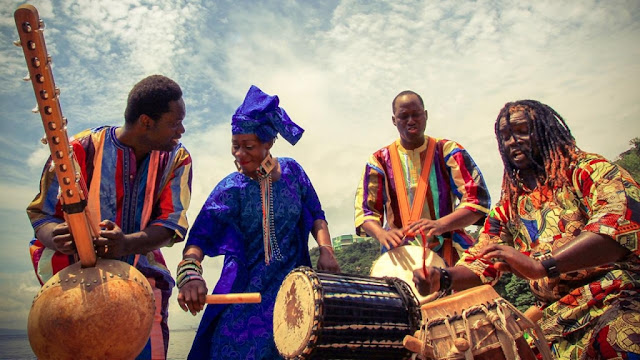Rethinking Christmas Celebrations: A Reflection on Christianity's Historical Impact on Africans and Their Descendants
The celebration of Christmas, traditionally a joyous occasion marking the birth of Jesus Christ, has been embraced globally, transcending cultural and religious boundaries. However, a perspective has emerged that challenges the notion of African people and their descendants celebrating Christmas, citing historical grievances rooted in the perceived actions of Christianity. This essay aims to explore the viewpoint suggesting that Africans and their descendants should reconsider their participation in Christmas festivities due to the historical grievances associated with Christianity.
Historical Context:
To understand the argument against Christmas celebrations, it is crucial to acknowledge the historical impact of Christianity on the African continent. The arrival of European colonizers, often under the banner of Christianity, led to a complex and tumultuous history. Colonization brought with it not only religious doctrines but also exploitation, subjugation, and violence. The intersection of missionary activities with imperialist endeavors has left a lasting imprint on the collective memory of many Africans and their descendants.
Genocide and Oppression:
Critics argue that Christianity, wielded as a tool of cultural imposition, contributed to the genocide and oppression faced by various African communities. The forced conversion of indigenous peoples, destruction of sacred traditions, and the brutal suppression of resistance movements are indelible marks on the historical canvas. As such, proponents of the perspective in question assert that celebrating Christmas may inadvertently endorse a religious tradition that played a role in perpetuating these atrocities.
Impact on Cultural Identity:
Another facet of the argument against Christmas celebrations revolves around the impact of Christianity on the cultural identity of Africans and their descendants. The imposition of European values and norms, often intertwined with Christian teachings, led to the erasure of indigenous belief systems and practices. Consequently, some argue that participating in Christmas festivities may inadvertently contribute to the ongoing dilution of cultural heritage and the perpetuation of a foreign worldview.
Reclaiming Cultural Autonomy:
Advocates for refraining from Christmas celebrations argue that such a stance is not rooted in animosity towards religious practices but rather in a desire to reclaim cultural autonomy. By abstaining from festivities tied to a history of oppression, individuals may seek to affirm their agency in shaping their cultural narratives. This perspective encourages a reassessment of traditions, fostering an environment where cultural practices are not compromised by historical injustices.
In conclusion, the debate over whether Africans and their descendants should celebrate Christmas due to historical grievances with Christianity is a complex and multifaceted issue. The historical context of colonization, genocide, and cultural suppression cannot be dismissed, and the call to reassess the participation in Christmas celebrations emerges from a desire to reclaim cultural autonomy and address historical grievances. However, it is essential to recognize the diversity of perspectives within African and diasporic communities, acknowledging that the debate is not monolithic. Ultimately, this discourse prompts critical reflections on the intersection of religion, culture, and historical trauma, fostering a nuanced understanding of the complexities surrounding Christmas celebrations for Africans and their descendants.







Comments
Post a Comment